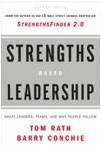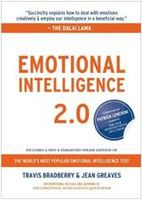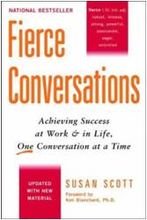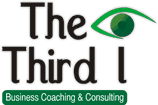Resources
Articles/Resources
Articles/Resources
Business Coaching & Consulting
"If you don't like something change it; if you can't change it, change the way you think about it."
~ Mary Englebreit
Recommended Articles
The Manager as Coach: Tools for Teaching
Roots, Purpose and ROI of Coaching by Ruth Garrett
Recommended Reading

StrengthsFinder 2.0: A New and Upgraded Edition of the Online Test from Gallup's Now, Discover Your Strengths (Hardcover)by Tom Rath
Clifton's research highlights folly of the widely used "weakness prevention" model that says to be successful we must "fix" our weaknesses. Tom discusses how this thinking is wrong. Building a life around one's greatest natural abilities rather than trying to repair weaknesses is the path to success.
The book is organized around the use of the StrengthsFinder (provided with the purchase of the book) to identify, assess and affirm our Signature Themes (talents), and how to apply them for growth and life success. Finding one's themes and understanding their uniqueness should help one to gain a better appreciation of how special they are and how special the people around them are - deeper self-respect, deeper mutual respect. Studies indicate that people who do have an opportunity to focus on their strengths are three times more likely to have an excellent quality of life in general.

Strengths-Based Leadership (Hardcover)by Tom Rath and Barry Conchie
Rath and Conchie have provided us with a helpful tool for fine-tuning our own leadership capacity. Using statistical factor analysis of data in Gallup's database, the authors detail how balanced leadership teams have strengths within four Leadership Domains: Strategic Thinking, Relationship Building, Influencing, and Executing. The authors relate that while individuals are rarely balanced, teams always should be. Leadership Teams operating in these four domains work both to serve the four primary needs of their constituencies and to execute their primary organizational responsibilities.
Using a recent Gallup review of data from 10,000 followers, the authors also report that followers report surprising agreement on four of their primary needs: trust, compassion, stability, and hope.
Leaders who read this book will have a deepened appreciation of both their own leadership abilities and of the degree to which they lead best when they work in team. This book includes an online StrengthsFinder Assessment.

The Emotionally Intelligent Manager: How to Develop and Use the Four Key Emotional Skills of Leadership (Hardcover)by David R. Caruso (Author), Peter Salovey (Author)
Based on solid research and science but written in an easy-to-understand, accessible style, here is a practical guide to understanding, developing, and applying emotional intelligence in the workplace. Written by two psychologists–one of whom, Peter Salovey–is credited by Daniel Goleman with laying the scientific foundation for the emotional intelligence theory model. These authors also share their expertise in helping managers enhance these abilities in everday work life as a leader.The Emotionally Intelligent Manager is a hands-on resource for anyone who works with others, from top management on down. This book includes an online Emotional Style Assessment.

Emotional Intelligence 2.0 (Hardcover)by Travis Bradberry, Jean Greaves and Patrick M. Lencioni
The book makes a strong case for why emotional intelligence is important on the job, and uses data from inside real organizations to show how EQ impacts job performance and company performance.
The strategies in the book can easily be weaved into your daily routine without thinking too hard about it. You can review the strategies section each morning before you head to work, and find yourself applying what you read all day long.
The book also includes access to an online test which is incredible. The results allow you to clearly see how you can come across to other people.

Fierce Conversations: Achieving Success at Work and in Life One Conversation at a Time (Paperback)by Susan Scott
Fierce Conversation starts with the premise that "the conversation is the relationship" and we must have Fierce (robust) Conversation's in all of our relationships -- business and personal. Don't be put off by the title, Fierce does not mean you get to beat everyone up - it really is an invitation to, as the author says - interrogate reality. Susan Scott does an effective job in weaving her three big ideas about conversations through the book. The ideas are simple yet powerful and can change the way we talk both to ourselves and to others.
Affiliations


